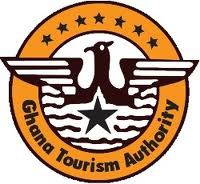The Ghana Tourism Authority (GTA) is far advanced with the establishment of a data entry centre that will help to keep records of and track persons who enter the country as part of efforts to position the country as a safe, secure and clean tourism destination.
Acting Executive Director of the Authority Charles Osei-Bonsu, addressing a four-day Safety and Security Exhibition and Conference in Accra, indicated that the facility when commissioned will enable the country to public statistics that will be internationally acceptable.
He said: “GTA has initiated certain actions in line with promoting tourism safety and security; and is far advanced in establishing the first data entry centre that helps the country publish statistics that will be internationally acceptable.
“But the most important security aspect of it is that the system is being integrated with the various guest-record systems from various hotels across the country, so that the GTA can access records of visitors as they check into the facility.”
According to Mr. Osei-Bonsu, for the country to be seen as a favourable destination for tourism, there is a need to emphasise strongly on the safety and security of tourists with adequate infrastructure - aside from the provision of a stable socio-political environment and friendly human resource.
He said the issue about safety and security of tourists has become critical considering the various acts of terrorism, xenophobic attacks and bombing of resorts in some countries on the continent, and this is where the data centre comes in handy.
He added: “Setting up the data centre will also enable security agencies to access information on suspicious persons directly from the GTA without having to check from one hotel to another”.
Mr. Osei-Bonsu further indicated that to address the issue of poor service delivery, the GTA will organise a nationwide customer service programme for personnel of the tourism and hospitality sector including receptionists, housekeepers, waiters/waitresses to groom them on how to ensure and protect the safety of visitors who check into their respective facilities.
The GTA has also selected six beaches along the coastal area from the Volta Region to the Western Region, under a pilot scheme that will see the authority clear the filth on those beaches and develop, package and promote them in a way that the host communities can benefit and see the need to maintain them.
The four-day exhibition and conference was organised by the Tourism Safety and Security Initiative (TOSS) in collaboration with the Ghana Tourism Authority (GTA) and Ghana Tourism Federation (GHATOF) on the theme ‘Promoting tourism through safety, security and clean environment’.
Chairperson of TOSS, Doreen Owusu-Fianko, touched on the idea behind the event: “This is a tourism safety and security awareness campaign—the first of six thematic areas that TOSS is focusing on as part of its mandate to promote the country as a safe, secured and clean tourist destination.
“The exhibition is a platform for all tourism-related businesses and other industry stakeholders, as well as civil society organisations and investors, to showcase their products and services which have a direct bearing on promoting tourism.
“It also provides an avenue for promoting tourism to both domestic and international potential tourists; encourage networking that will lead to the forging of strategic partnerships; and attracting direct investments.”
TOSS is a Ghanaian-registered non-governmental organisation and a leading member of the Ghana Tourism Federation, with a mission to lead a national crusade aimed at developing sustainable programmes and products; as well as take appropriate measures that will safeguard, protect and ensure the security of tourists, tourist attraction sites and receptive facilities toward growth and development of the tourism industry.
According to the TOSS boss, this mission will be accomplished along six thematic areas: namely tourism safety and security awareness campaigns; tourism policing; safe, reliable and efficient public transportation; public health and environment; insurance, banking and safety schemes; and cultural heritage.
Business News of Tuesday, 31 May 2016
Source: B&FT
Boost for tourism industry
 GTA logo
GTA logo
















